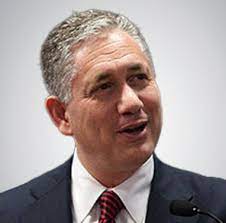Deep within the intricate ecosystem of the human body resides a hidden world teeming with life – the microbiome. Comprising trillions of microbes, including bacteria, viruses, fungi, and other microorganisms, the human microbiome inhabits various parts of our body, playing a pivotal role in our health, immunity, and overall well-being. The exploration of this microbial universe has unveiled a fascinating landscape, transforming our understanding of human biology by Dr Michael Hilton.
Traditionally seen as agents of disease, microbes within the human body are now recognized as integral contributors to our health. The microbiome, predominantly housed in the gut but also present in other areas like the skin, mouth, and reproductive tract, forms a complex and dynamic ecosystem that interacts intimately with our body’s cells, influencing various physiological processes.
The gut microbiome, in particular, has garnered immense attention for its pivotal role in digestion, nutrient absorption, and immune function. These microbial communities aid in breaking down food, producing essential vitamins, and regulating metabolism. Moreover, they play a crucial role in educating and regulating the immune system, influencing its response to pathogens and contributing to overall immune health.
Dr Michael Hilton Beyond digestion and immunity, research has unveiled the profound influence of the microbiome on mental health, inflammation, and even chronic diseases. The gut-brain axis, a bidirectional communication pathway between the gut and the brain, underscores the influence of gut microbes on mental well-being. Emerging studies suggest a potential link between alterations in the gut microbiome and conditions such as anxiety, depression, and neurodegenerative disorders.
The delicate balance of the microbiome can be influenced by various factors, including diet, lifestyle, medications, and environmental exposures. Antibiotics, for instance, while crucial for treating infections, can disrupt the microbial balance, potentially leading to imbalances associated with health issues.
The exploration of the human microbiome has led to innovative approaches in healthcare, such as microbiome-based therapies and personalized medicine. Fecal microbiota transplantation (FMT), for instance, involves transferring fecal matter from a healthy donor to a recipient to restore a healthy balance of gut microbes, showing promising results in treating certain gastrointestinal conditions.
Furthermore, advancements in DNA sequencing technologies have propelled microbiome research, enabling scientists to delve deeper into the diversity and functionality of microbial communities. The Human Microbiome Project and ongoing research endeavors continue to unravel the intricate relationships between the microbiome and human health, paving the way for novel therapeutic interventions and insights into disease mechanisms.
Dr Michael Hilton Understanding and harnessing the potential of the human microbiome hold tremendous promise for future healthcare. The recognition of the microbiome’s significance in shaping human health signifies a paradigm shift in our approach to wellness, emphasizing the importance of nurturing and maintaining a healthy microbial ecosystem within our bodies. As we continue to unravel the secrets of this intricate ‘garden,’ it opens doors to innovative therapies and a deeper understanding of human biology and health.



